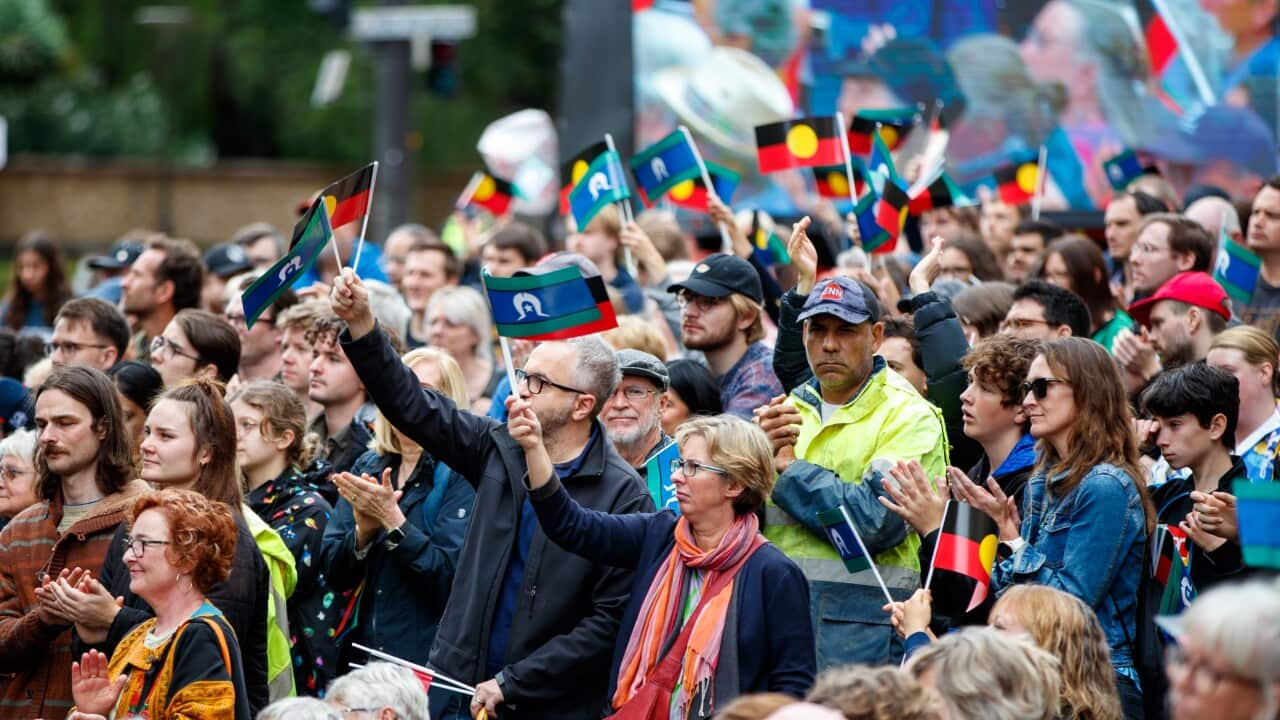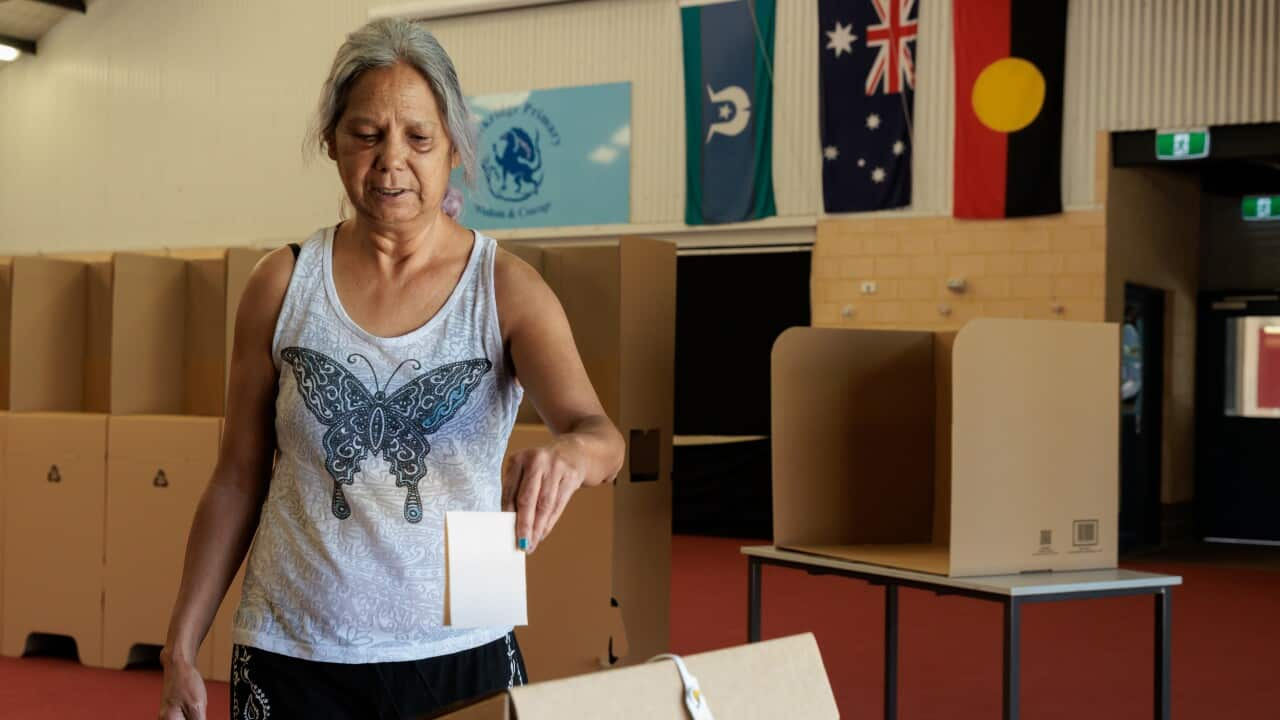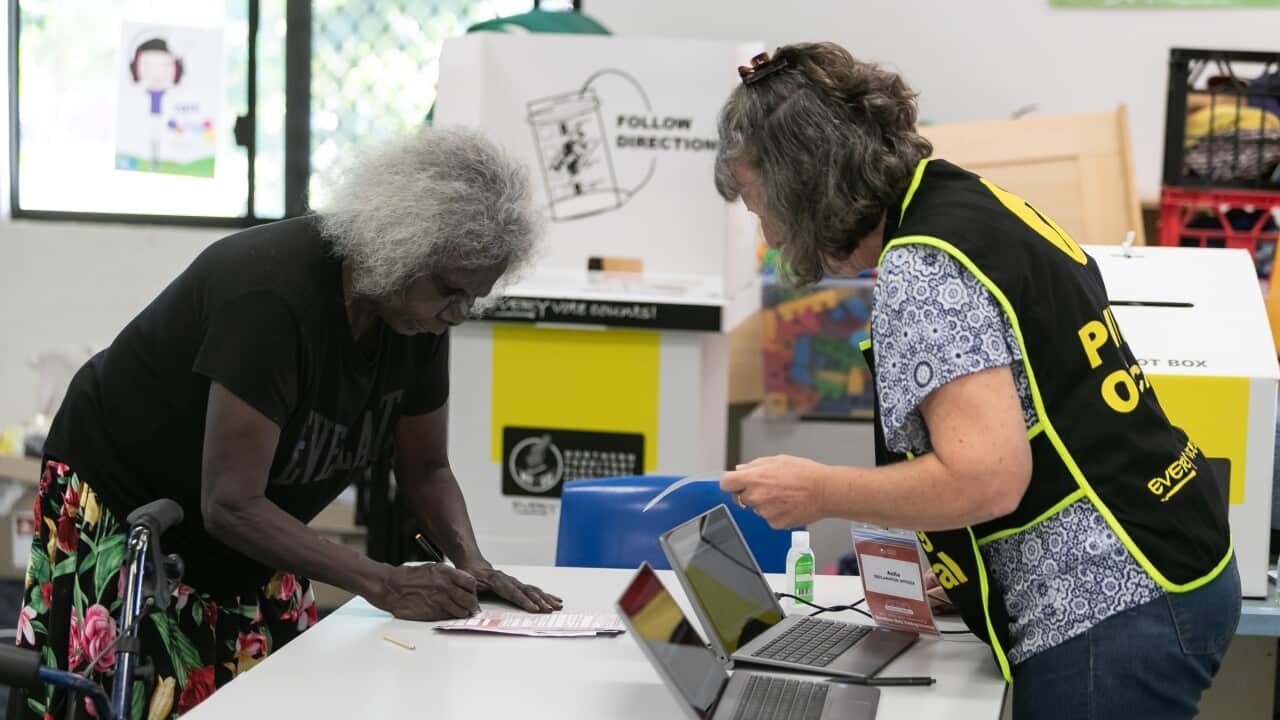Monday saw the official declaration of the candidates for South Australia's Voice to Parliament.
The state's Indigenous voters will head to the polls in just over two weeks to elect representatives from their local area to the advisory body.
So what will the body look like, and what will be its function?
Who will make up the local Voices?

SA's Attorney-General Kyam Maher addresses the crowd on the steps of Parliament House in Adelaide, in honour of the legislation's passing. Source: AAP / MATT TURNER/AAPIMAGE
The regions are: Central, Far North, Flinders and Upper North, Riverland and South East, West and West Coast, and Yorke and Mid-North.
Each will have seven representatives, except for the Central region, which will have 11, due to its larger Indigenous population.
The candidates must be Indigenous, over 18 years old, and either live in the region they are nominating for or have Traditional Owner claims and a cultural connection to that region.
Scores of locals have nominated themselves as candidates, with a mix of genders and ages (over 18).
Voters can find information on the candidates on
What will the Voice do?
South Australia decided to form a state-based response to the Uluru Statement from the Heart, which called from Truth, Treaty and a representative Voice.
In March last year, the SA parliament passed the First Nations Voice Act, following consultations with the community.
The Act allows for a Voice model that closely reflects the one proposed by the Calma-Langton report commissioned by the Morrison government.
That means there will be two levels of Voice bodies: local Voices and a state Voice.
Local voices will consult with and listen to the concerns of the residents of their respective communities, and advocate for what they and their communities believe are the solutions to those issues.
Each region will then elect two members to represent them in the state-level Voice, which will then relay the concerns of their communities to the relevant government ministers.
The idea, as it was with the federal Voice, is that communities are given direct access to those in power, and a pipeline for Indigenous solutions to reach the ears of government.
Elections
amid the clamour of the national Voice to Parliament referendum campaign.
The new election date of Saturday 16 March is fast approaching, and enrolments to vote are no longer possible.
Voters can also vote early from Monday 4 March until Friday 15 March, and mobile polling stations will head to regional and remote areas during that same period.
Counting will not begin however until Monday 25 March, to ensure all ballots have been collected.





